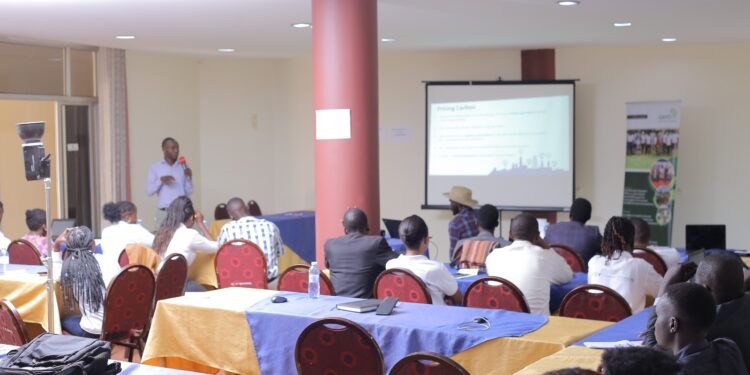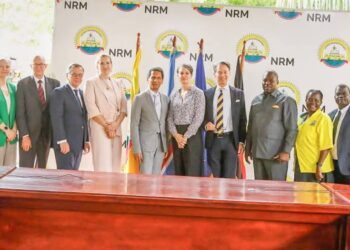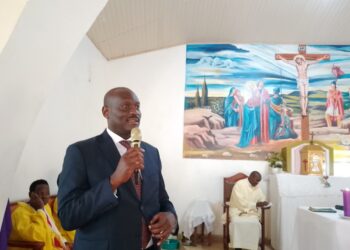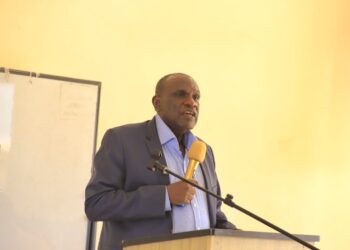As the world continues getting ravaged by the hard-hitting impacts of Climate Change, the Green Africa Youth Organization (GAYO Uganda) has amplified efforts aimed at mitigating this dilemma.
This followed the recent study conducted in partnership with the Youth Climate Councils Global Alliance and the Youth Climate Council in Uganda penning down critical gaps hindering thorough youth engagement in bottom-up climate policy processes.
Among these issues captured by the report were a lack of opportunities, financial resources, capacity and an organized structure for meaningful engagement in climate activism and policy discussions.
The report dubbed A Pathway to Resilience recommended an ardent need to centre youth as (co) leaders in the climate movement goes a long way beyond recognizing their potential, dynamic adaptabilities and enthusiasm- to creating meaningful and safe spaces and providing adequate resources to scale up their impact and ambition.
According to Aiita Joshua Apamaku, Climate Officer Gayo Uganda, there is a need for a contextual understanding of the needs and priorities of the younger generation while creating safe spaces, and providing resources to support their work.
In a quest to achieve this, Gayo Uganda and the Youth Climate Council in Uganda have trained 34 youths on the role of participation in climate policy.
The second edition of the policy training took place last week at the Grand Global Hotel in Kampala. This was in collaboration with several partners, including GIZ in Uganda, the National Youth Council, TARD Foundation, Citizens Concern Africa, and Pearl of Africa TV.
“The training was organized to expound extensively on a robust co-learning space between the facilitators and participants with a deep dive on increasing participants’ knowledge of UNFCCC processes and carbon market-based climate financing mechanisms,” Aiita said adding that the full day of training attracted 34 young people from all over the country.
Isaac Ndyamuhaki, Programs Manager, Circular Economy at GAYO Uganda revealed that the rationale of the training was driven by the ever-growing need for youth to build on their knowledge and skill base- to understand and conceptualize through thematic areas, their role in contributing towards addressing the climate crisis.
Ndyamuhaki encouraged the participants and trainees to embrace intensive learning and building self-capacities around topics that matter most to their experiences, interests and professional aspirations.
“The training further sets a precedent on the power of youth (co)learning spaces and how youth have continued to effectively support themselves and build their capacities to address the critical societal challenges that arise from climate change,” Nyamuhaki said adding that Moving forward from the Workshop, GAYO Uganda in collaboration with the Youth Climate Council envisioned a long-term strategy to build the capacity of youth along thematic tracks.
“The Green Africa Youth Organization and the Youth Climate Council remain strongly committed to building the capacities of youth to identify their niche while meaningfully contributing from an informed perspective through policy and implementation processes.” He revealed.
Meanwhile, Green Africa Youth Organization (GAYO), is a youth-led gender-balanced advocacy group that focuses largely on environmental sustainability and community development. Founded in the year 2014, dedicated to developing the human interest to observe basic natural laws and adopt the behaviour of living in harmony with nature.
Seeking a future where there is a balanced relationship between humans and the various natural systems on which they depend in such a way that all the components are accorded a proper degree of sustainability. Over the years GAYO’s work has been in diverse fields including climate change, circular economy, disaster risk reduction, sustainable agriculture, and renewable energy activism.
Do you have a story in your community or an opinion to share with us: Email us at editorial@watchdoguganda.com













